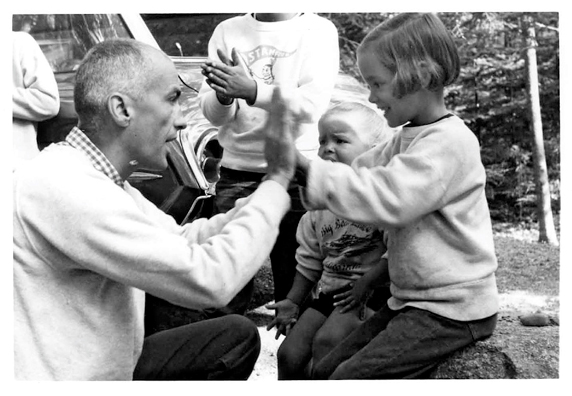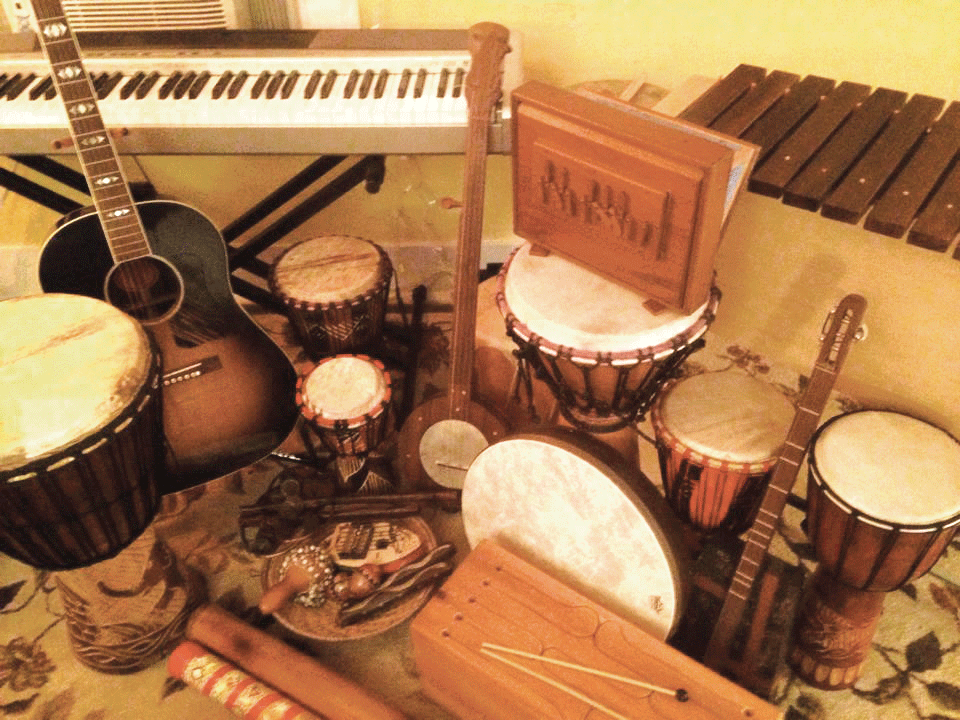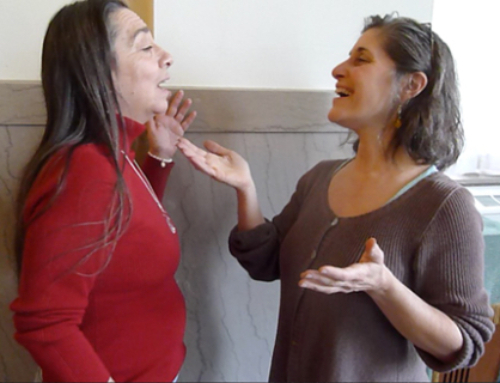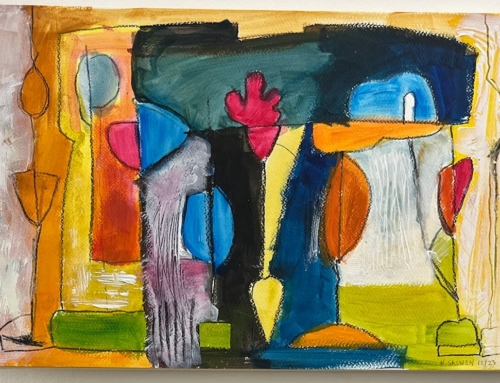 I wrote this article a while back for an early childhood magazine. Every single tip here applies to adults as well — so read on and be inspired. Do these activities for/with yourself and know that you are awakening and encouraging your own musical inner child.
I wrote this article a while back for an early childhood magazine. Every single tip here applies to adults as well — so read on and be inspired. Do these activities for/with yourself and know that you are awakening and encouraging your own musical inner child.
There are many ways you can make your life, your home, and yourself more musical. And if you have people in your life with young children, please pass this on to them!
Most of us would agree music is good for us; it’s fun and important. It’s a great mood regulator. Music is comforting us when we’re down and cheers us on when we’re happy.
Music energizes us, motivating us to exercise, clean the house and buy things (think advertising jingles). There’s a ton of research showing that music makes us smarter – nations and schools with strong music education are linked with higher academic achievement and studies have shown music learning in older adults wards off dementia and Alzheimer’s. Music creates cultural empathy, bringing together people from very different cultures around the world. Music soothes children to sleep.
So, can we bring music into our children’s lives at an early age, even if we don’t feel that we ourselves are musical? YES WE CAN! And it’s easy and fun – you can become a musical family!
The following techniques work with babies, kids and even adults:
 Sing a Lot!
Sing a Lot!
Sing in the car, while doing housework, while taking walks. Sing along to recorded music. Don’t worry if you think you can’t sing – we can all sing to some extent, and what’s important here is modeling. Even if you are a “non-singer” your kids won’t inherit whatever difficulties you might have singing in tune; they will inherit your enjoyment of singing.
Check out the Smithsonian Folkways Children’s Music Collection – I grew up with music like this and sing it in my kids music programs now. This stuff is timeless and very accessible – you’re sure to find a few things here that you can sing along with!
Echo to Reinforce
When your baby coos, or your toddler sings a song fragment, try singing it back to them to start a musical conversation. Children learn music the same way they learn language – engagement and communication are the keys. (For people without kids — echo other things you hear. Animal sounds, song fragments, chain saws!)
Sing Lullabies to Your Children
Besides being very useful and lovely, when you sing lullabies to your little ones you create a profoundly deep connection between the sweetest of moments and the singing voice. It’s profound because it’s occurring during the magical moments of semi-consciousness, and also because it’s a place and time where singing is inseparable from love. If you don’t know any lullabies yet, search on the internet and find a few you like. Or make up your own — even just humming a made-up on the spot tune creates a beautiful experience for you and your child.
Put on Music and Dance
Dancing with your kids is lots of fun and a great way to bring a sense of rhythm into the whole body – a crucial musical skill!
Sing through Transitions
Sing songs while cleaning up toys, putting on winter clothes or getting into the tub. Transitions are all easier when we sing our way through them. “Let’s all put the toys away, toys away, toys away… Let’s all put the toys away, Then we can go out!” This also adds to your child’s sense that singing is a natural part of daily life.
Sing Doo, Doo, Doo
Sing a familiar song like “Row, Row, Row Your Boat” or “You Are My Sunshine” but replace the words with a simple repeated syllable like “Doo, Doo, Doo” or Bum, Bum, Bum.”
By removing the words and isolating the melody and rhythm of a familiar song you allow your child’s brain to process and gain understanding of what’s happening musically. Young children work all day on their language skills; singing on “vocables” like these from time to time allows them the opportunity to be immersed in, and focused on, the language of music.
 Dig Out Your Old Instruments
Dig Out Your Old Instruments
Do you have a guitar or sax buried somewhere in a closet? Dig them out and share them with your kids. Even if you don’t remember how to play them, giving your kids a chance to become familiar with the look, the touch and the most basic sounds of a variety of instruments is extremely engaging and will peak their interest in music.
Play with Found Sound
Pots and pans, buckets and spoons, cardboard tubes and even floors and walls all make great instruments. Even our bodies make great instruments when we use our mouths, bellies or hands. Discovering sounds in everyday items shows kids that music is all around us, all the time. All we have to do is play it!
Create an Accessible Music Basket
Fill a box or a basket with simple instruments. Shaker eggs, rattles, small drums, bells and chimes are easy to pick up and play. Let your children explore them on their own, or join in and have a family jam session!
Savor Acoustic Delights
Elevators, parking garages, tunnels, caves (if you happen to have any around) and even big pots (stick your head in one and sing!) all offer great opportunities to shout and sing and experience new ways to hear the resonance of our own voices. Very fun and empowering!
 Enjoy Community Music Making
Enjoy Community Music Making
Don’t pass up an opportunity to sing and play music with other people. Sing around the campfire, take a class or join in a jam. Even if your skills are minimal you can tap your feet, clap your hands and hum. Participating in community music making is wonderfully bonding, a great way to learn and models for your kids that music making is for them.
By creating musical experiences and musical memories for your children, you will give them the precious and lifelong gift of music, and have fun in the process.
Nancy Salwen is the director of Music Together for Monadnock Families, an early childhood family music program, and teaches early childhood music in schools. She also teaches singing to “non- singers” through her program “Fear of Singing,” and leads music-based team building workshops for businesses and organizations. She is a member of the Natural Voice Practitioners Network and a graduate of Music for People’s Musicianship and Leadership program.
For more information, contact 603-721-1492, send her an email at nancy@salwen.net or visit www.MusicAllAround.net.






Leave A Comment